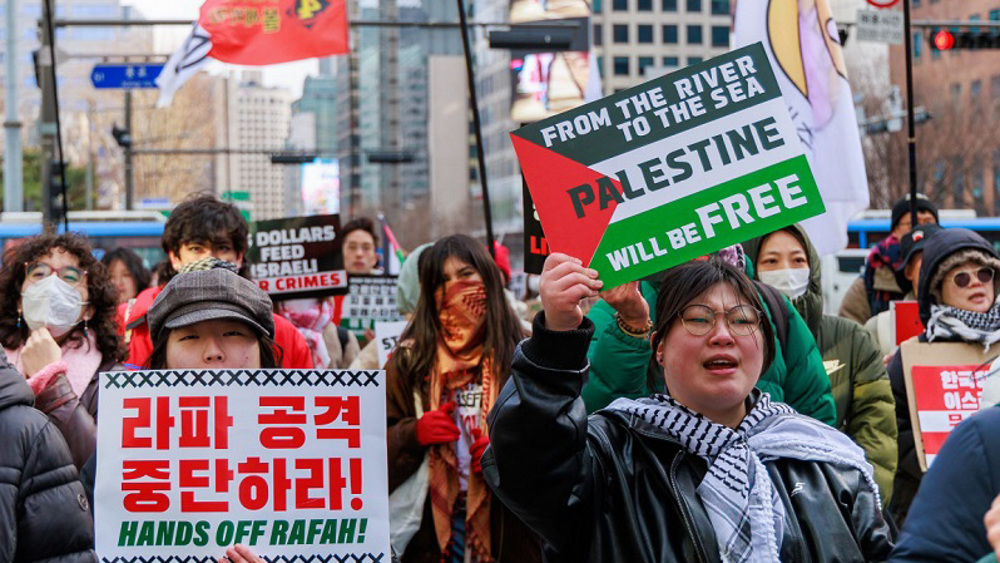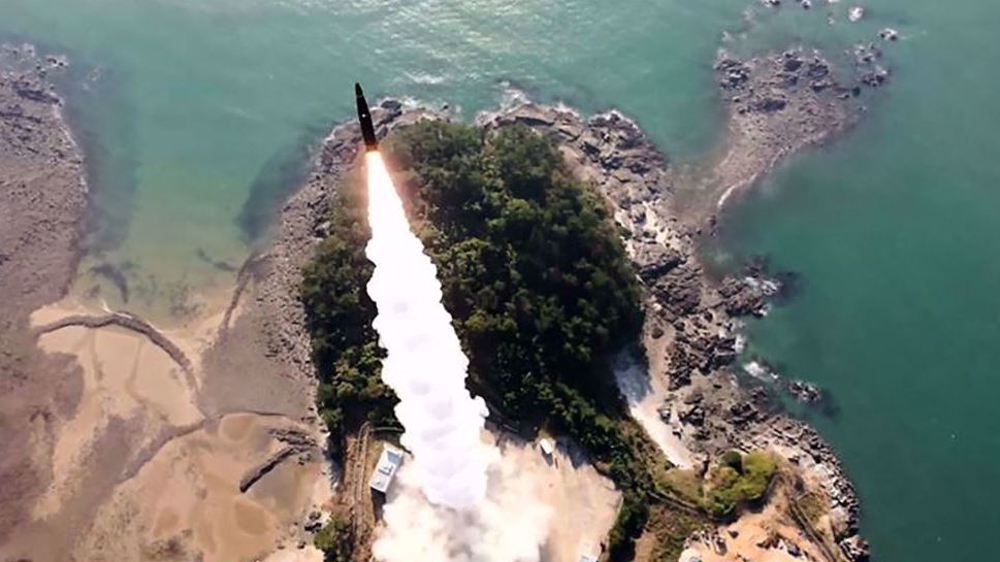N Korea vows ‘physical response’ to US, South
North Korea has pledged “physical response” to US deployment of the sophisticated THAAD missile system in Korean Peninsula.
The strong reaction on Monday came after Russia warned South Korea and the US of “irreparable consequences” and China summoned ambassadors of the two countries to hear a protest against the controversial deployment.
Washington and Seoul reached a formal agreement on Friday to deploy the Terminal High Altitude Area Defense (THAAD) on the Korean Peninsula in a bid to counter alleged threats by Pyongyang.
In a statement, the North Korean military threatened the South with a “ruthless retaliatory strike.”
"There will be physical response measures from us as soon as the location and time that the invasionary tool for US world supremacy, THAAD, will be brought into South Korea are confirmed," it said.
Seoul has said the selection of a site for THAAD could come "within weeks," working with the US to have it operational by the end of 2017.
"It is the unwavering will of our army to deal a ruthless retaliatory strike and turn (the South) into a sea of fire and a pile of ashes the moment we have an order to carry it out," the statement carried by the official KCNA news agency said.
South Korea's Defense Ministry shot back, vowing "decisive and strong punishment from our military" to any "rash and foolish action."
In an effort to allay concerns from Russia and China, South Korean President Park Geun-hye also said the THAAD system was not intended to target any third country other than the threat from the North.
Beijing has said the system exceeds the security needs of the Korean peninsula. On Saturday, Chinese Foreign Minister Wang Yi suggested there was a "conspiracy behind this move."
China has said the deployment of the system will harm regional peace and do nothing to help denuclearize the volatile peninsula.
Russia has also said the missile system tends to undermine stability in the region and "most negatively affect global strategic stability."
“The United States, supported by its partners, are continuing to build up the potential of the Asia-Pacific segment of the global anti-missile defense system, which undermines the established strategic balance in the region and beyond,” the Russian Foreign Ministry said on Friday.
Moscow and Beijing view the planned move as an attempt to put their military facilities within the range of US radars.
THAAD has been designed to intercept ballistic missiles inside or just outside the atmosphere during their final phase of flight.
Russia is also worried by US deployment of a similar system in Europe due to perceived threats from Iran. Moscow has dismissed those claims unfounded, saying Iran’s missile program does not pose a threat to Europe at all.
Russia is reinforcing its western and southern flanks with three new divisions in response to the readying of the systems in Romania, Poland and the Baltics.
'Wartime law'
North Korea also said Monday it has notified the US that it would sever the only channel of diplomatic communication between them and will handle all matters, including two Americans it has detained, under wartime laws.
North Korea has jailed two American citizens after convicting them of crimes against the state.
The KCNA said the decision was is in response to last week's blacklisting of the North's leader, Kim Jong Un, as part of new US sanctions targeting North Korean officials and entities.
Russia launches 'ICBM' for first time against Ukraine: Kiev
Scores killed as Takfiri terrorists target Shia Muslims in Pakistan
Pezeshkian to US, Europeans: You are killing women, children
VIDEO | COP29: another climate failure?
ICC issues arrest warrants for Netanyahu, Gallant for war crimes
Israeli strikes kill 88 Palestinians in northern Gaza
American voters plainly rejected complicity in Gaza genocide: Iran FM spox
ICC should issue more arrest warrants for Israeli authorities over Gaza genocide: UN expert










 This makes it easy to access the Press TV website
This makes it easy to access the Press TV website